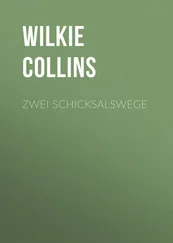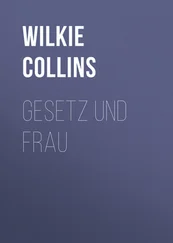Wilkie Collins - Little Novels
Здесь есть возможность читать онлайн «Wilkie Collins - Little Novels» весь текст электронной книги совершенно бесплатно (целиком полную версию без сокращений). В некоторых случаях можно слушать аудио, скачать через торрент в формате fb2 и присутствует краткое содержание. Год выпуска: 1999, Жанр: Классическая проза, на английском языке. Описание произведения, (предисловие) а так же отзывы посетителей доступны на портале библиотеки ЛибКат.
- Название:Little Novels
- Автор:
- Жанр:
- Год:1999
- ISBN:нет данных
- Рейтинг книги:5 / 5. Голосов: 1
-
Избранное:Добавить в избранное
- Отзывы:
-
Ваша оценка:
- 100
- 1
- 2
- 3
- 4
- 5
Little Novels: краткое содержание, описание и аннотация
Предлагаем к чтению аннотацию, описание, краткое содержание или предисловие (зависит от того, что написал сам автор книги «Little Novels»). Если вы не нашли необходимую информацию о книге — напишите в комментариях, мы постараемся отыскать её.
Little Novels — читать онлайн бесплатно полную книгу (весь текст) целиком
Ниже представлен текст книги, разбитый по страницам. Система сохранения места последней прочитанной страницы, позволяет с удобством читать онлайн бесплатно книгу «Little Novels», без необходимости каждый раз заново искать на чём Вы остановились. Поставьте закладку, и сможете в любой момент перейти на страницу, на которой закончили чтение.
Интервал:
Закладка:
“I don’t know what o’clock it was when I went to sleep. I don’t know how long I slept, or whether I dreamed or not. The candle and the fire had both burned out, and it was pitch dark when I woke. I can’t even say why I woke—unless it was the coldness of the room.
“There was a spare candle on the chimney-piece. I found the matchbox, and got a light. Then for the first time, I turned round toward the bed; and I saw—”
She had seen the dead body of her husband, murdered while she was unconsciously at his side—and she fainted, poor creature, at the bare remembrance of it.
The proceedings were adjourned. She received every possible care and attention; the chaplain looking after her welfare as well as the surgeon.
I have said nothing of the evidence of the landlady and servants. It was taken as a mere formality. What little they knew proved nothing against Mrs. Zebedee. The police made no discoveries that supported her first frantic accusation of herself. Her master and mistress, where she had been last in service, spoke of her in the highest terms. We were at a complete deadlock.
It had been thought best not to surprise Mr. Deluc, as yet, by citing him as a witness. The action of the law was, however, hurried in this case by a private communication received from the chaplain.
After twice seeing, and speaking with, Mrs. Zebedee, the reverend gentleman was persuaded that she had no more to do than himself with the murder of her husband. He did not consider that he was justified in repeating a confidential communication—he would only recommend that Mr. Deluc should be summoned to appear at the next examination. This advice was followed.
The police had no evidence against Mrs. Zebedee when the inquiry was resumed. To assist the ends of justice she was now put into the witness-box. The discovery of her murdered husband, when she woke in the small hours of the morning, was passed over as rapidly as possible. Only three questions of importance were put to her.
First, the knife was produced. Had she ever seen it in her husband’s possession? Never. Did she know anything about it? Nothing whatever.
Secondly: Did she, or did her husband, lock the bedroom door when they returned from the theater? No. Did she afterward lock the door herself? No.
Thirdly: Had she any sort of reason to give for supposing that she had murdered her husband in a sleep-walking dream? No reason, except that she was beside herself at the time, and the book put the thought into her head.
After this the other witnesses were sent out of court The motive for the chaplain’s communication now appeared. Mrs. Zebedee was asked if anything unpleasant had occurred between Mr. Deluc and herself.
Yes. He had caught her alone on the stairs at the lodging-house; had presumed to make love to her; and had carried the insult still farther by attempting to kiss her. She had slapped his face, and had declared that her husband should know of it, if his misconduct was repeated. He was in a furious rage at having his face slapped; and he said to her: “Madam, you may live to regret this.”
After consultation, and at the request of our Inspector, it was decided to keep Mr. Deluc in ignorance of Mrs. Zebedee’s statement for the present. When the witnesses were recalled, he gave the same evidence which he had already given to the Inspector—and he was then asked if he knew anything of the knife. He looked at it without any guilty signs in his face, and swore that he had never seen it until that moment. The resumed inquiry ended, and still nothing had been discovered.
But we kept an eye on Mr. Deluc. Our next effort was to try if we could associate him with the purchase of the knife.
Here again (there really did seem to be a sort of fatality in this case) we reached no useful result. It was easy enough to find out the wholesale cutlers, who had manufactured the knife at Sheffield, by the mark on the blade. But they made tens of thousands of such knives, and disposed of them to retail dealers all over Great Britain—to say nothing of foreign parts. As to finding out the person who had engraved the imperfect inscription (without knowing where, or by whom, the knife had been purchased) we might as well have looked for the proverbial needle in the bundle of hay. Our last resource was to have the knife photographed, with the inscribed side uppermost, and to send copies to every police-station in the kingdom.
At the same time we reckoned up Mr. Deluc—I mean that we made investigations into his past life—on the chance that he and the murdered man might have known each other, and might have had a quarrel, or a rivalry about a woman, on some former occasion. No such discovery rewarded us.
We found Deluc to have led a dissipated life, and to have mixed with very bad company. But he had kept out of reach of the law. A man may be a profligate vagabond; may insult a lady; may say threatening things to her, in the first stinging sensation of having his face slapped—but it doesn’t follow from these blots on his character that he has murdered her husband in the dead of the night.
Once more, then, when we were called upon to report ourselves, we had no evidence to produce. The photographs failed to discover the owner of the knife, and to explain its interrupted inscription. Poor Mrs. Zebedee was allowed to go back to her friends, on entering into her own recognizance to appear again if called upon. Articles in the newspapers began to inquire how many more murderers would succeed in baffling the police. The authorities at the Treasury offered a reward of a hundred pounds for the necessary information. And the weeks passed and nobody claimed the reward.
Our Inspector was not a man to be easily beaten. More inquiries and examinations followed. It is needless to say anything about them. We were defeated—and there, so far as the police and the public were concerned, was an end of it.
The assassination of the poor young husband soon passed out of notice, like other undiscovered murders. One obscure person only was foolish enough, in his leisure hours, to persist in trying to solve the problem of Who Killed Zebedee? He felt that he might rise to the highest position in the police force if he succeeded where his elders and betters had failed—and he held to his own little ambition, though everybody laughed at him. In plain English, I was the man.
V.
WITHOUT meaning it, I have told my story ungratefully.
There were two persons who saw nothing ridiculous in my resolution to continue the investigation, single-handed. One of them was Miss Mybus; and the other was the cook, Priscilla Thurlby.
Mentioning the lady first, Miss Mybus was indignant at the resigned manner in which the police accepted their defeat. She was a little bright-eyed wiry woman; and she spoke her mind freely.
“This comes home to me,” she said. “Just look back for a year or two. I can call to mind two cases of persons found murdered in London—and the assassins have never been traced. I am a person, too; and I ask myself if my turn is not coming next. You’re a nice-looking fellow and I like your pluck and perseverance. Come here as often as you think right; and say you are my visitor, if they make any difficulty about letting you in. One thing more! I have nothing particular to do, and I am no fool. Here, in the parlors, I see everybody who comes into the house or goes out of the house. Leave me your address—I may get some information for you yet.”
With the best intentions, Miss Mybus found no opportunity of helping me. Of the two, Priscilla Thurlby seemed more likely to be of use.
In the first place, she was sharp and active, and (not having succeeded in getting another situation as yet) was mistress of her own movements.
In the second place, she was a woman I could trust. Before she left home to try domestic service in London, the parson of her native parish gave her a written testimonial, of which I append a copy. Thus it ran:
Читать дальшеИнтервал:
Закладка:
Похожие книги на «Little Novels»
Представляем Вашему вниманию похожие книги на «Little Novels» списком для выбора. Мы отобрали схожую по названию и смыслу литературу в надежде предоставить читателям больше вариантов отыскать новые, интересные, ещё непрочитанные произведения.
Обсуждение, отзывы о книге «Little Novels» и просто собственные мнения читателей. Оставьте ваши комментарии, напишите, что Вы думаете о произведении, его смысле или главных героях. Укажите что конкретно понравилось, а что нет, и почему Вы так считаете.











